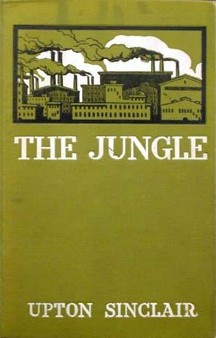I plan to start the 100 things in 1,000 days this Friday, April 1. I'm getting excited! I will have 90 things on the list by then. I want to leave the last ten open in case something I do inspires me -- or you -- to come up with a great idea, and I'll add those ideas as they come.
However, if anyone has suggestions they haven't made yet, now's the time. I'm especially interested in finding a good way to learn about anthropology in a modern, culturally-aware context; resources for learning educational theories (beyond just plunking myself down in the relevant section of the library); resources to learn more queer history or disability history (especially recent); and new writing exercises I haven't tried.
However, if anyone has suggestions they haven't made yet, now's the time. I'm especially interested in finding a good way to learn about anthropology in a modern, culturally-aware context; resources for learning educational theories (beyond just plunking myself down in the relevant section of the library); resources to learn more queer history or disability history (especially recent); and new writing exercises I haven't tried.
- Visit Mystic Seaport in Mystic, CT. I'm a transplant New Englander, having grown up in lake-rich but landlocked upstate NY, so even after having fallen in love with and worked at the USS Constitution Museum, there's a lot to maritime history that I don't know and haven't seen.
- Visit the Whaling Museum at the Nantucket Historical Association, for similar reasons.
- Tour a lighthouse. Believe it or not, I've only been to one lighthouse in my life. I mean, I've walked up to the base of one or two, but I've only toured one. I remember telling my favorite American Girl doll all about it when I got home, so I think it was a while ago.
- Speaking of my childhood, I am interested in interviewing one or more of my own K-12 teachers about how their teaching practices have changed over the years.
- In college, one of my poetry teachers, Olga Broumas, sometimes had us take a poem we had written and cut the number of syllables in half. It was an interesting exercise, and had different results from cutting down the word count or other measures of length. She focuses a lot on the sound and musicality of poetry; the exercise is probably ill-suited to working towards the final draft of a piece of prose, but I'm interested to try it out. So, I will take a piece of prose I’ve written and cut the number of syllables in half.
- Read Understanding by Design, by Grant J. Wiggins and Jay McTighe. I'm always on the lookout for good resources about education that can be adapted for use outside of the classroom, and this looks like one of them.
- I'd like to do a walk that follows a historic route. I can't tell you how many tourists think that the Freedom Trail in Boston is the route that Paul Revere took during his midnight ride -- never mind that the ride was to spread news from Boston to suburban Lexington, which was considered out in the country back then. I don't know if Revere's route is the one I want to trace, but I'll come up with something. P.S. The Freedom Trail is actually the trail that connects 16 sites related to the American Revolution and the country's early history.
- Linda N. suggested, "If you can, try Art-o-Mancy." Art-o-mancy is a technique of reflective discussion and introspection using art as a focusing tool. It's inspired by cartomancy (fortune telling using a deck of cards), bibliomancy, and so on. The official Art-o-Mancy sessions currently take place at the Minneapolis Institute of Art, and I may or not be able to swing by Minneapolis during this project, but if I don't do an official session, I'll try to apply the principles of the technique on my own or with a friend.
- Read Upton Sinclair's 1906 novel The Jungle. This is the book that sparked a food safety movement, when it was intended to fuel interest in the well-being of low-income workers, particularly immigrants (it reminds me of present-day debates about sick leave for restaurant workers). I hear it's not well written, but it's quite the historical document. Sinclair famously said, "I aimed at the public's heart, and by accident I hit it in the stomach."
- Do the research to determine whether I'd be eligible to join the Daughters of the American Revolution, the Colonial Dames, or a similar ancestry-based organization. I had a great-aunt who traced one branch of my family back 11 generations and I know I have at least one relative who was here before the American Revolution, but I don't know their involvement. I know very little about these organizations, and this would be one way to learn more.

Sometimes Art-o-mancy happens other places too--at AAM last year, I know, and perhaps other places out in the world. At least one trained artomancer in the Boston area ;)
ReplyDeleteGood to know, thanks!
Delete